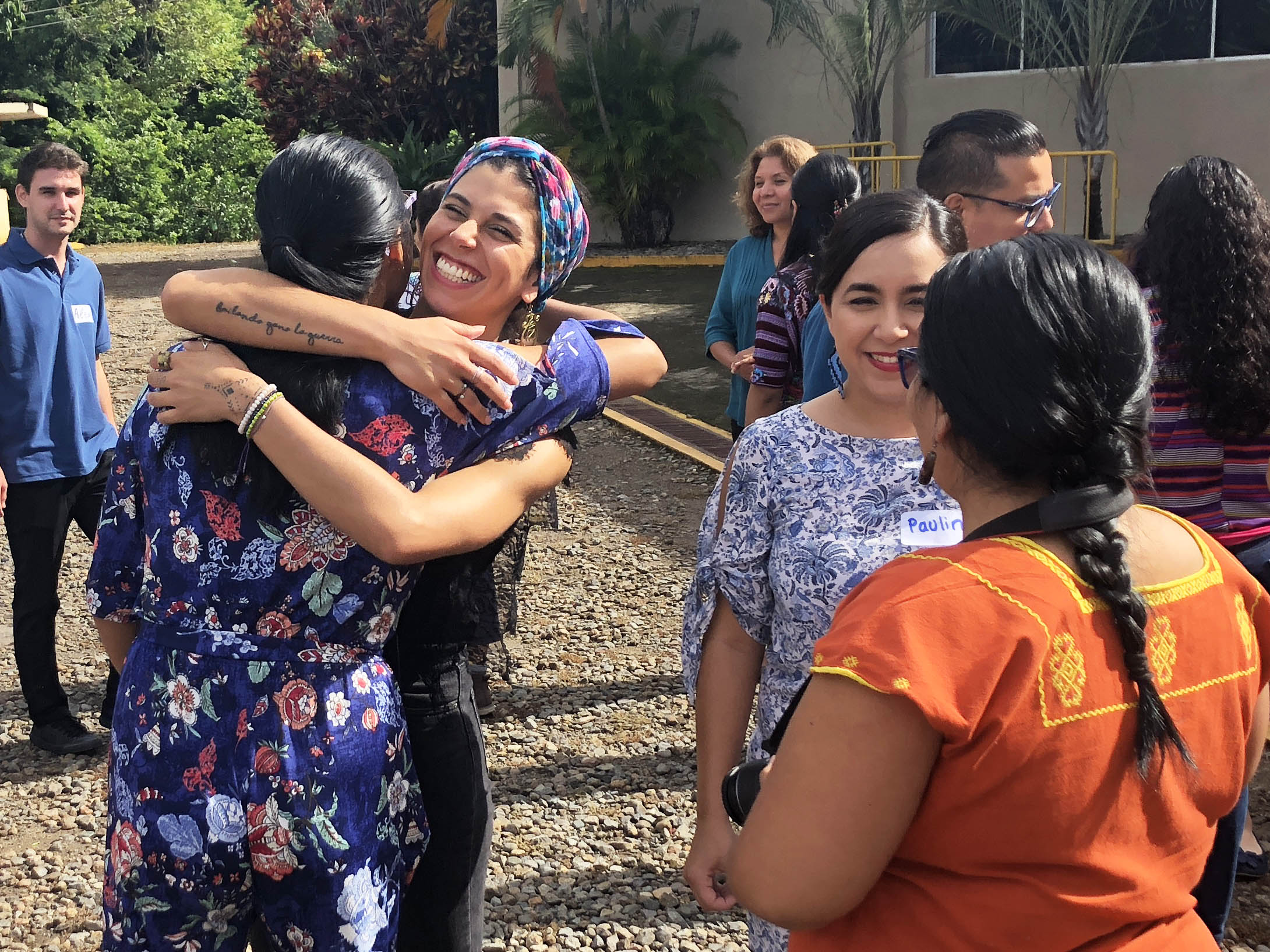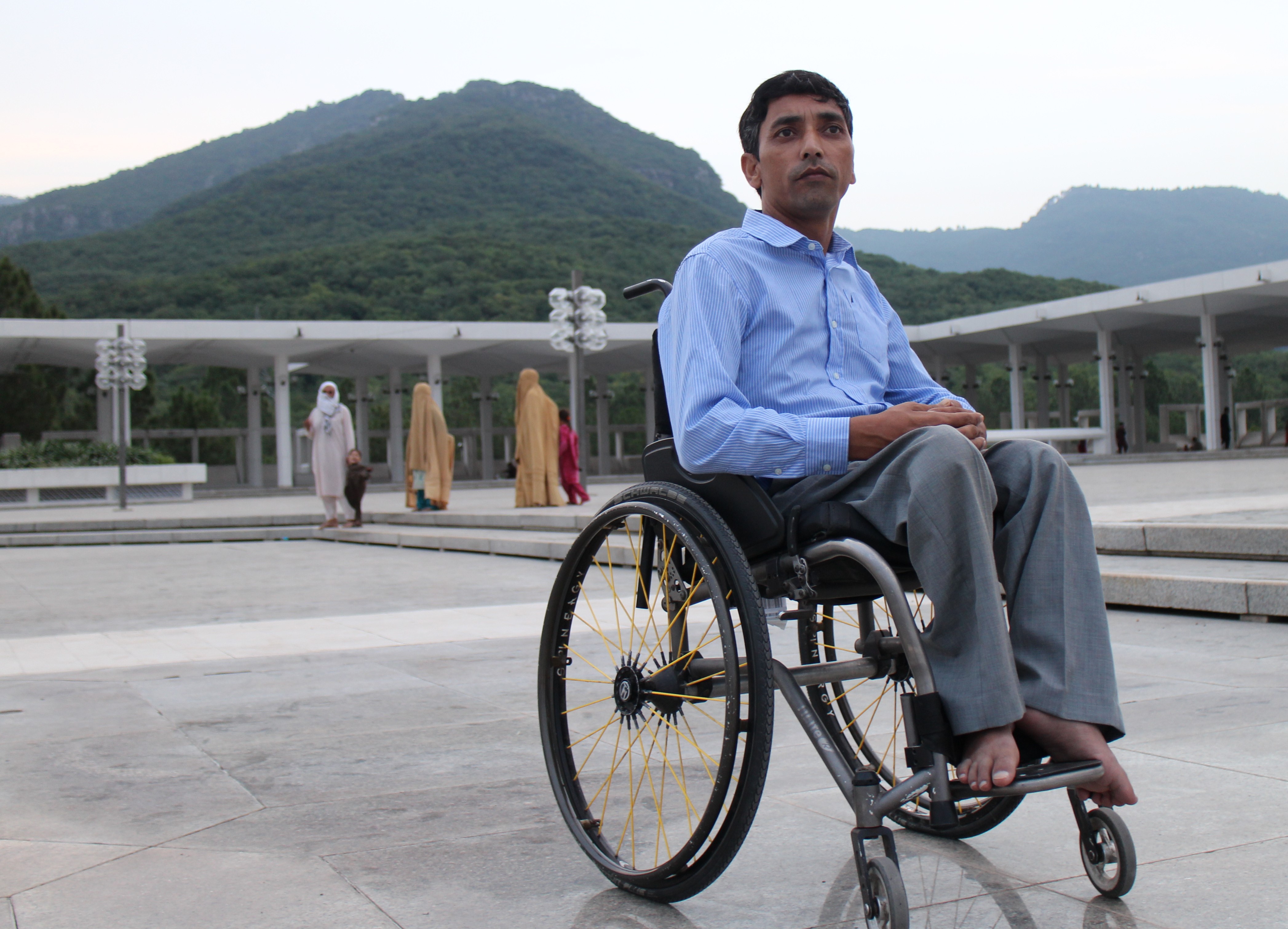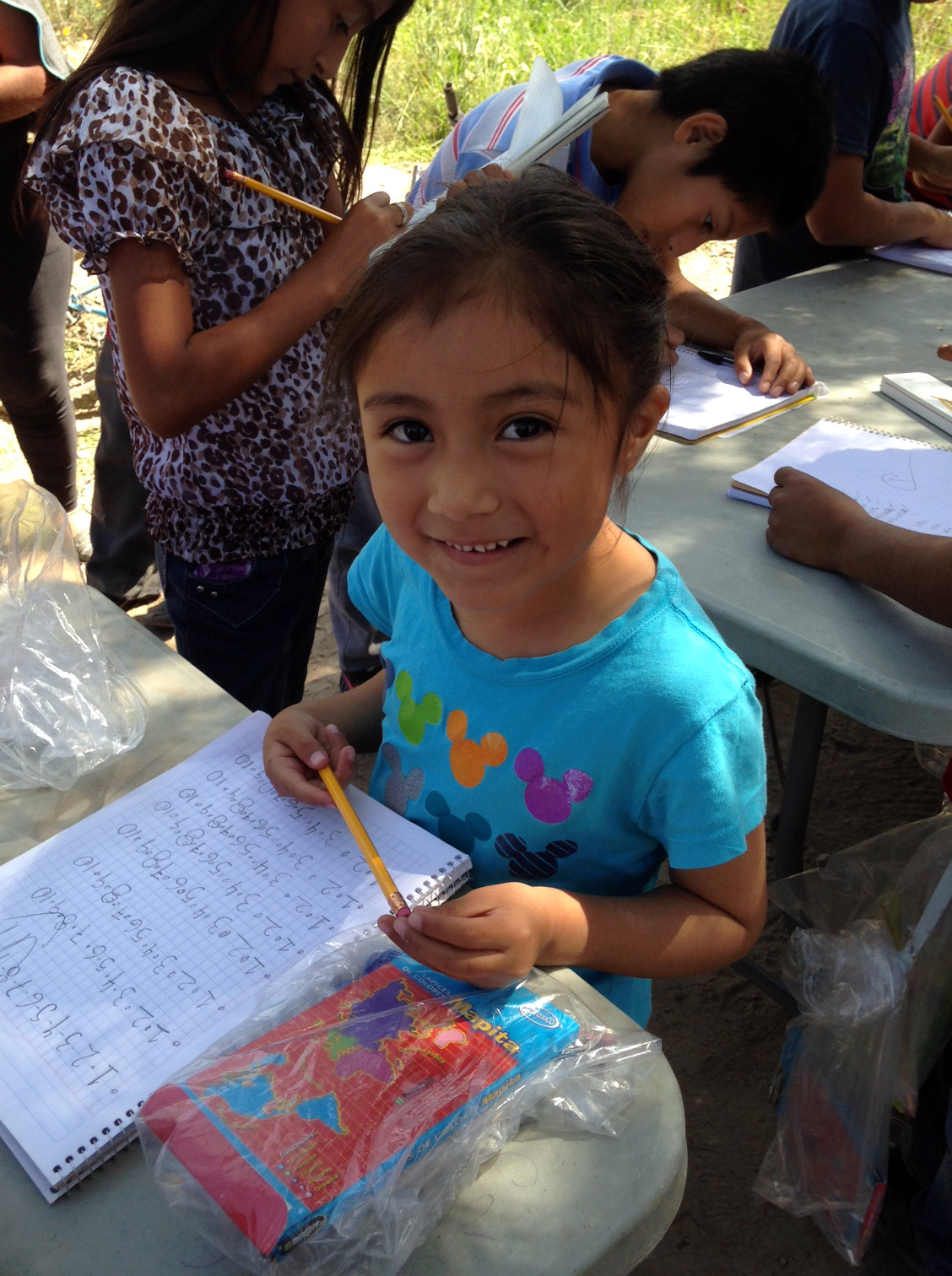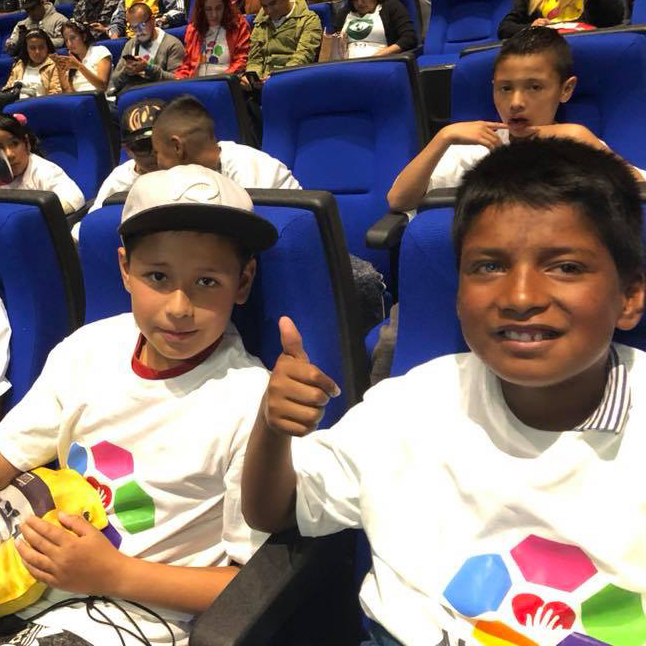“When I woke up the next day, life as I knew it—it had changed forever.” – a child from El Rodeo village, speaking about the eruption of Volcán de Fuego in Chimaltenango, Guatemala
When Guatemala’s Volcán de Fuego (Volcano of Fire) erupted in June, residents of the surrounding villages had hardly any warning. A landslide of volcanic rock buried El Rodeo village in Chimaltenango; in the bordering department of Escuintla, people fled the village of San Miguel Los Lotes as a cloud of volcanic ash swallowed their homes.
Our partner Asociacion Generando (ASOGEN), located in Chimaltenango, responded immediately to the emergency. The organization is no stranger to disaster, having served as a crucial community resource in the aftermath of Hurricane Stan in 2005.
After an assessment of damages and an analysis of health needs, ASOGEN determined how to respond and developed a plan. In the days following the disaster, the organization focused on fulfilling immediate needs such as providing food, clothing, and medicine for families affected by the eruption. Part of ASOGEN’s own shelter—which is primarily used as a safe haven for victims of human trafficking—became a fulfillment center for emergency supplies. In the weeks that followed, ASOGEN designed a psychosocial care program, which focuses on helping children and youth to process and cope with the trauma they experienced.
A few weeks ago, I traveled to Guatemala to see ASOGEN’s work in action. In Escuintla, I visited Albergue de Transicion Unifamiliar, a government-run shelter providing housing to displaced families from El Rodeo and Los Lotes.
When you first arrive to the shelter, it seems that life goes on normally. Children are playing, mothers are tending to the household chores, smiling and chatting. Nearby the shelter, American and Guatemalan soldiers worked on building temporary housing to relieve overcrowding and give displaced families their own spaces.
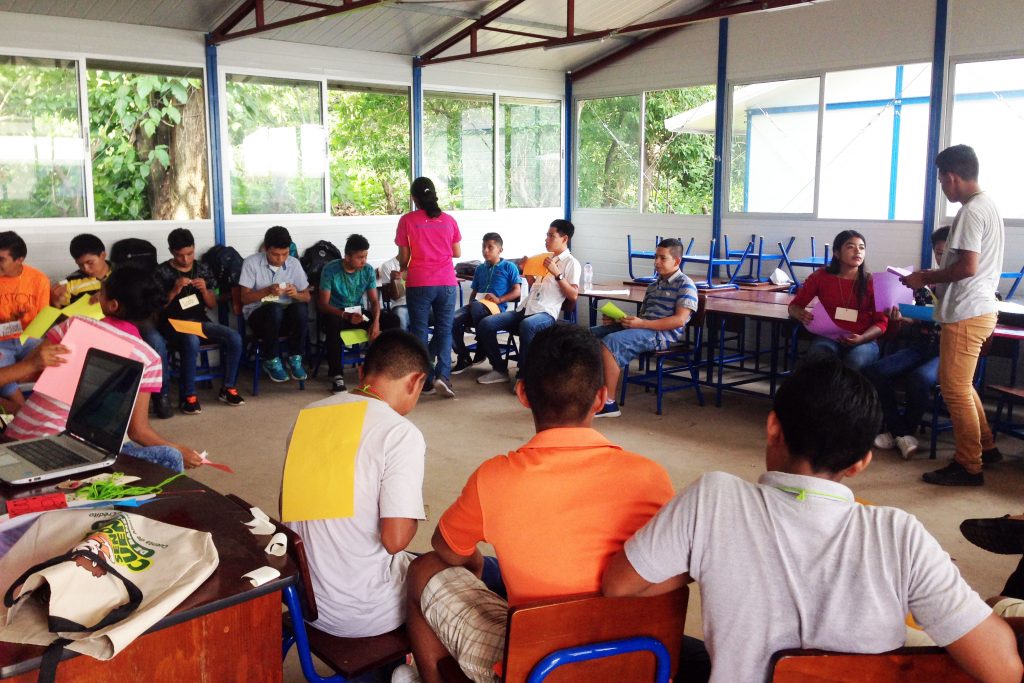
However, under the surface, everything has changed. The shelter has a temporary school where students from Instituto por Cooperativa de Aldea El Rodeo, a school that was destroyed by the volcano, are finishing out their school year. Because some students showed post-traumatic behaviors, the school principal Julia Rodriguez Giron contacted ASOGEN and asked for help.
Every two weeks, ASOGEN’s staff visit the shelter and provide psychological and medical care. According to Marian Salazar, ASOGEN’s medical doctor, displaced students there suffer from a number of ailments such as urinary tract diseases, dermatitis, and impetigo. Psychological care is provided by ASOGEN’s seven-person team, which includes psychologists and social workers. Each of them works with a group of approximately 25 students and covers a curriculum that includes topics like controlling emotions and stress management.
The students share their emotions as a group and try to cope with the sadness of losing family, friends, and livelihoods. A particularly moving element is the “burning of emotions,” where students write their feelings on a piece of paper. The paper is then burned, symbolizing the elimination of emotions that they no longer want to feel.
I had the opportunity to attend one of the workshops and see firsthand the conditions where the workshops are being held. Both the government and school authorities understand the programs’ importance and have arranged for ASOGEN to facilitate the student workshops while the ministry of education provides a similar workshop for teachers.
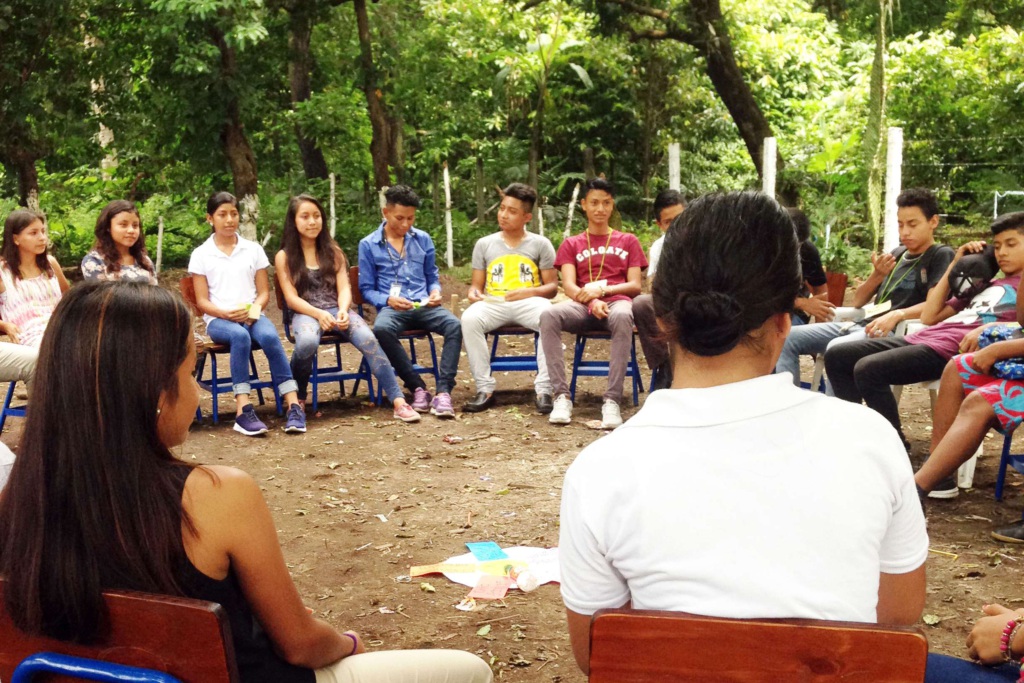
On the day of my visit, most of the groups met in the shelter’s aluminum classrooms, while one group gathered instead under a big avocado tree that provided shade against Escuintla’s intense heat. At the session I attended, students sat in a circle with a spinner made out of paper, on which were written a range of emotions—hope, despair, fear, sadness, anger, happiness. I listened as students spun the dial and worked through their feelings. Many of the voices I heard conveyed the sadness students still feel after the disaster.
“Before the eruption of the volcano, my life was different.”
“Since the eruption happened, I have not had a moment of joy.”
One of the questions that touched my heart was when ASOGEN’s psychologist asked about some common friends that died in the landslide in El Rodeo. She asked students how they were feeling regarding losing those friends and how they want to remember them.
“That Friday Karen, Ludwig, Jefferson, and I were so happy to leave school because the exam period was over,” one of the students said.
Karen, Ludwig, and Jefferson died, but mentioning their names in the workshop session brings closure to those who remember them.
Through the implementation of this workshop, ASOGEN’s team is monitoring the progress of the students’ mental health. Both the ASOGEN team and the school principal know that recovery from grief and acceptance of reality is a long-term process, but they are already seeing signs of improvement.
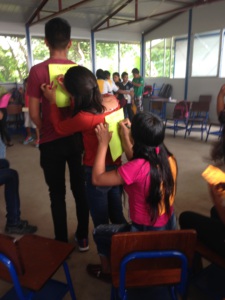 One of the activities of the workshop focuses on developing a positive attitude towards life. Every student sticks a piece of paper on their backs and other students write positive and encouraging sentences about their peers, their families, and their future life. Some of the sentences I had the opportunity to read and photograph show that these children are supporting one another and see sparks of hope in their lives.
One of the activities of the workshop focuses on developing a positive attitude towards life. Every student sticks a piece of paper on their backs and other students write positive and encouraging sentences about their peers, their families, and their future life. Some of the sentences I had the opportunity to read and photograph show that these children are supporting one another and see sparks of hope in their lives.
“I hope that in life you do better.”
“I wish the best for your family.”
“Despite being sad, I feel happy because my mom and sister are fine.”
“I’m still scared, but I am alive and that’s enough motivation to keep going.”
